
Table of Contents
For something so light and fragile, feathers carry heavy symbolism. Even though we know they come from birds, to find a feather brings a sense of magic and delight. So what is it that makes a feather evoke a sense of spirituality and mysticism? Is it because many cultures consider birds unique and sacred, admired for their ability to fly? Or do feathers have their own symbolism, independent of the symbolism of birds?
In this article, let’s break down what feathers can represent, why they’re so valued in many cultures, and what they mean today.
What Do Feathers Symbolize?
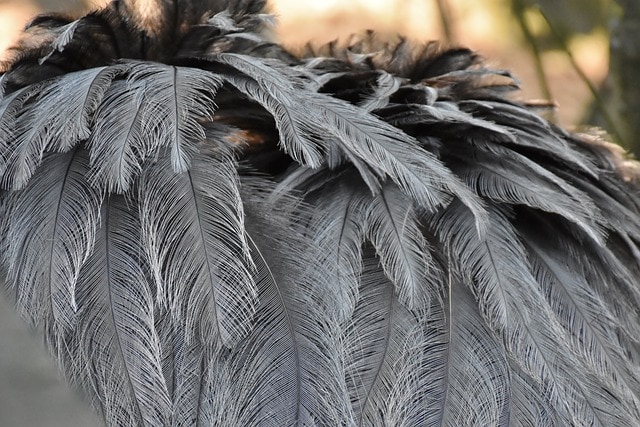
Since feathers have always had a special place in ancient cultures, their meaning has continued to evolve over the years. Here are some of the things that people have come to associate with feathers.
- Spirituality and Divinity: In many cultures, feathers are seen as a sign from the spiritual realm, representing angels, divine presence, and messages from the deceased or deities. In Christianity, feathers usually represent angels. This may have been where the expression “feathers appear when angels are near” come from. People have grown to consider feathers as gifts from the heavens, and as a sign that someone’s listening to your prayers. Since angels are often associated with the souls of loved ones, for some, seeing a feather means that a person you lost is watching over you.
- Freedom: Given that birds fly freely in the sky, feathers often symbolize freedom, transcendence, and unburdened journeys. This symbolism is also associated with wings and birds.
- Protection: Birds use their feathers to protect themselves from external elements, and thus feathers can symbolize shelter, warmth, and care. But they also represent the protection and love of guardian angels.
- Truth: In ancient Egypt, Ma’at the goddess of truth, justice, and balance, would use an ostrich feather to judge the souls of the afterlife. This has connection associates feathers with truth and moral integrity.
- Lightness and Spirituality: The lightness of feathers make them symbols of ascension and spiritual evolution to a higher plane. In some cultures, feathers are seen as a connection to spiritual realms.
- Hope and New Beginnings: As birds shed and regrow their feathers, they can symbolize renewal, rebirth, and hope for a brighter future. We can see this usage in literature as well. For example, the poem, Hope is the Thing With Feathers by Emily Dickinson uses the metaphor of a bird and feathers to represent hope.
- Achievement and Valor: In Native American cultures, receiving a feather, especially an eagle feather, was a mark of honor and respect. It could represent bravery, truth, and honesty. The idiomatic expression to put a feather in one’s cap is based on a custom where warriors added a new feather to their headgear every time they successfully slay an enemy. In some cases, hunters who successfully catch birds pluck their feathers off and put them in the hat of their bands. Such customs may have led to the association of feathers with personal achievement.
- Intuition and Trust: The appearance of feathers can be seen as a reminder to trust your intuition and thoughts, as well as the universe.
- Dreams and Inspiration: Feathers are often linked to dreams and are seen as symbols of inspiration and the ability to achieve higher aspirations.
- Communication: In some interpretations, especially in dreams, feathers can symbolize communication with spiritual realms, or a message being relayed to the dreamer.
Feather Symbolism Based on Color
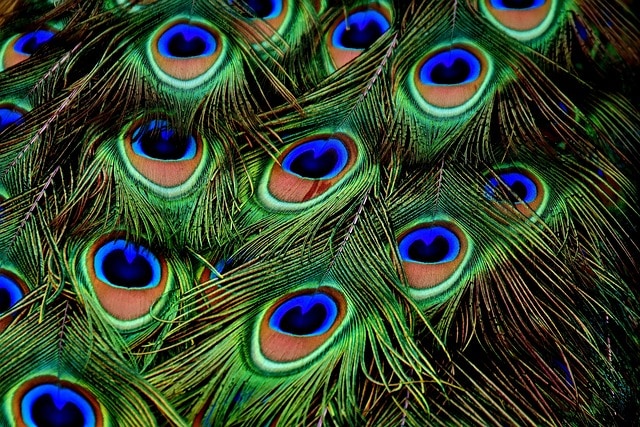
Apart from the above meanings, feather symbolism can also depend on the color of the feather. Here are the most common feather meanings based on color.
- White: White feathers are associated with protection, blessings, and guidance from the spiritual realm. They are believed to be loving messages from a loved one who passed. This is why some people save white feathers they see lying around.
- Black: While white feathers are often seen as good omens, black feathers have different interpretations. Some believe that black feathers bring bad luck because they’re related to crows, which are commonly associated with death. However, some believe that a black feather is a sign that your angel is busy defending you from evil.
- Blue: A blue feather may be a sign that your angel wants you to go on a spiritual journey by forging a stronger connections to the divine. If you see a blue feather after praying, it may mean that you’re being encouraged to either accept something or to remain patient despite the trials that you are facing.
- Yellow: Commonly associated with happiness and prosperity, the color yellow has also been associated with the sun and how it spreads joy. Finding a yellow feather is a reminder to look on the bright side and to find your joy.
- Green: Green feathers are usually associated with healing, success, and money. If you find one, it may mean that you’ll succeed in something, like finding a new job that pays better or getting that promotion that you’ve been waiting for. Since it’s also associated with healing, some think of it as an opportunity or reminder to check on their overall health.
- Pink: Pink feather symbolizes love. Finding one might be a sign that you may start dating someone or that it might be a good idea to spend more time with your current partner. Whether you are single or in a relationship, a pink feather is a reminder to keep your romance alive and burning.
Wings vs. Feathers: What’s the Difference in Symbolism?
While feathers and wings have many similarities because they are both associated with birds and angels, there are subtle differences in what they mean. Wings are believed to be signs of purity because they are related to doves that bring peace. Like feathers, they have also come to represent success because the act of flying is considered symbolic of achieving one’s goals.
However, one thing that makes wings unique is that they also symbolize freedom and escape. In language and literature, being given wings is symbolic of having the liberty to do what you want. In fact, in Greek mythology, the famous Daedalus and his son Icarus managed to escape by making wings made of wax. This eventually leads to Icarus’s demise because he flew too close to the sun, which caused him to fall to the sea, and drown. This is also symbolic of the saying that being too ambitious might not always work to one’s advantage.
Feathers in Different Cultures
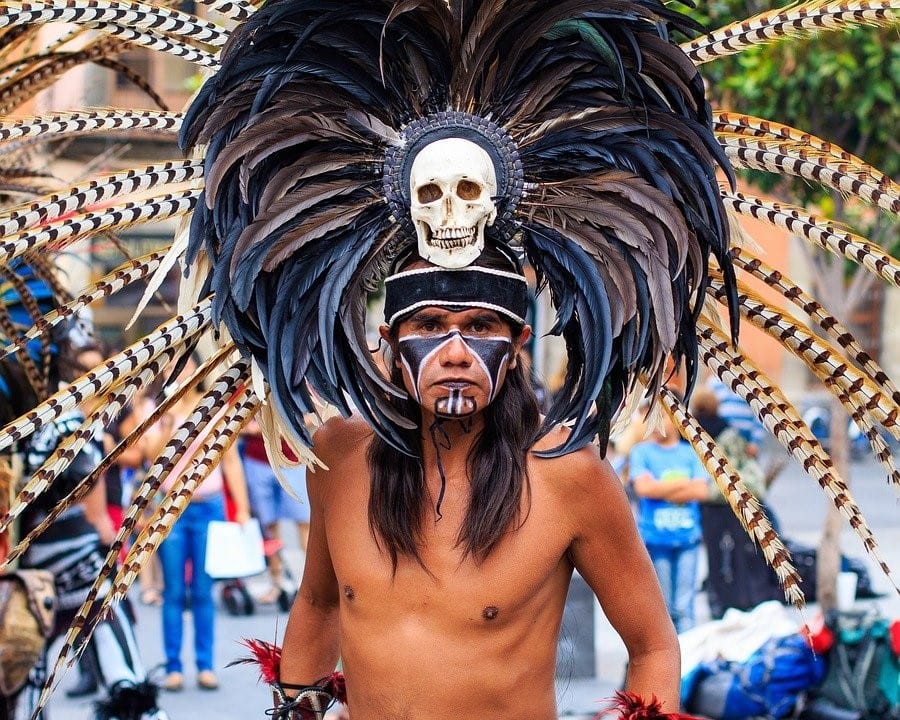
1. Feathers in the Aztec Civilization
While precious metals like gold and silver were valued and sought after by almost all ancient cultures, archaeological records show that feathers were treated by the Aztecs as prized possessions. Archaeological findings show that the Aztecs used bright-colored feathers to create handcrafted headdresses for their leaders. Feather work was considered one of the esteemed art forms in Aztec civilization, making them known for creating colorful and intricately designed mosaics made of feathers. They also made clothes, decorations, and even weaponry with feathers as one of the main materials.
The Aztecs’ value of feathers may have stemmed from the story about how they ended up choosing Tenochtitlan, a historic city in Mexico, as the capital of their empire. Legend has it that after wandering for years, the Aztecs reached the city and saw an eagle sitting on a cactus. Following the advice of their ancestors, they decided to settle in this area and put an end to their years of exploration.
2. Feathers in Celtic Mythology
In Celtic culture, religious leaders, known as Druids, may have worn cloaks with feathers, which were believed to help them connect with the sky gods. They held an important place in society as they also played the role of medical professionals, legal authorities, and even political advisors. Because the Druids relied on oral tradition, they didn’t write down their beliefs and practices.
3. Feathers in Egyptian Mythology
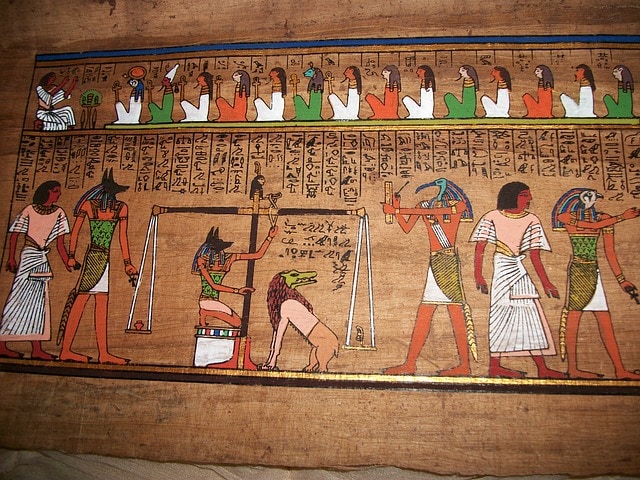
In Egyptian culture, feathers were also believed to symbolize the sky gods. As we’ve already mentioned, feathers represented justice because they believed that Ma’at, the Egyptian goddess of justice, used a feather to determine the worthiness of a person’s soul. Ancient Egyptian myth state that when someone dies, they had to pass through the Hall of Judgment. If their hearts were as light as Ma’at’s feather, it was a symbol of their righteousness, and they were allowed to make their way to the afterlife.
Wrapping Up
If you’re curious about what feathers mean because you keep finding different colored ones or you’ve had dreams about them, knowing how they’re interpreted in various cultures will help. In general, feathers represent good things, so you have nothing to worry about if you see one lying around. There may not be any scientific evidence that could back these claims, but to those that believe in them, feathers are highly symbolic, spiritual objects.
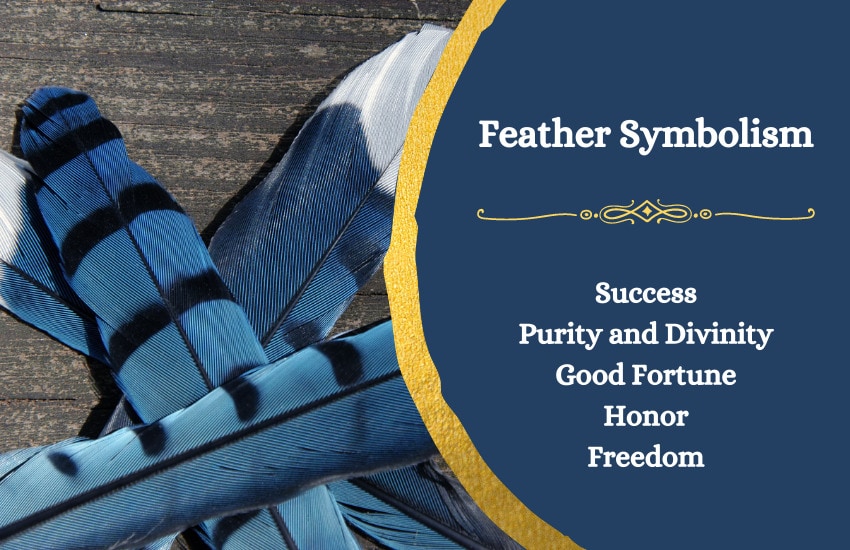
Related articles
12 Birds With Rich Symbolic Meanings: Myth to Reality
Dreaming of Birds – What Could It Mean?
Powerful Symbolism of Butterflies from Around the World
9 Powerful Symbolic Meanings of the Grasshopper
Stink Bugs – Spiritual Meaning and Symbolism
Ancient Egyptian Scarabs – Significance and Origin
Symbolism and Meaning of the Hummingbird








